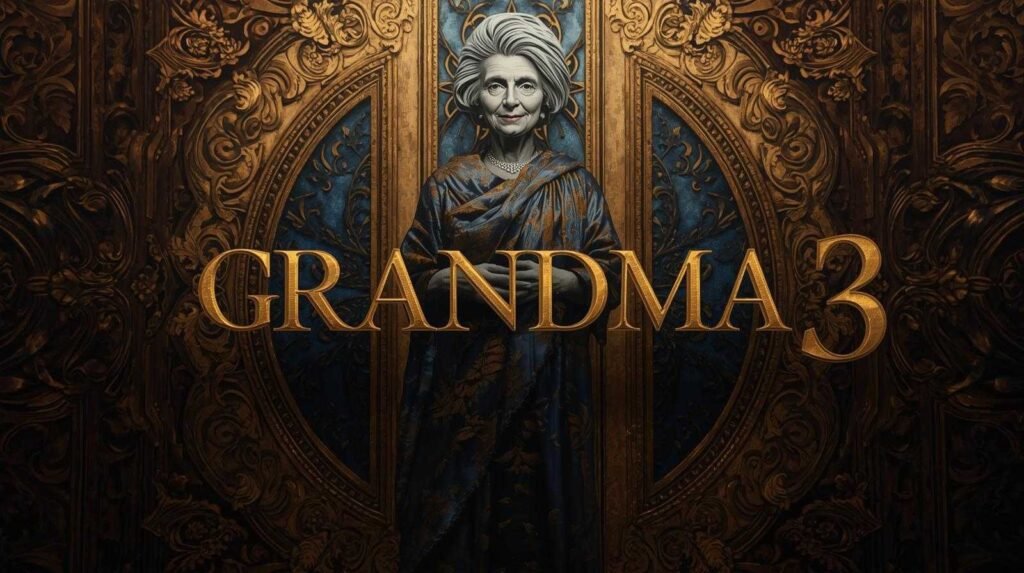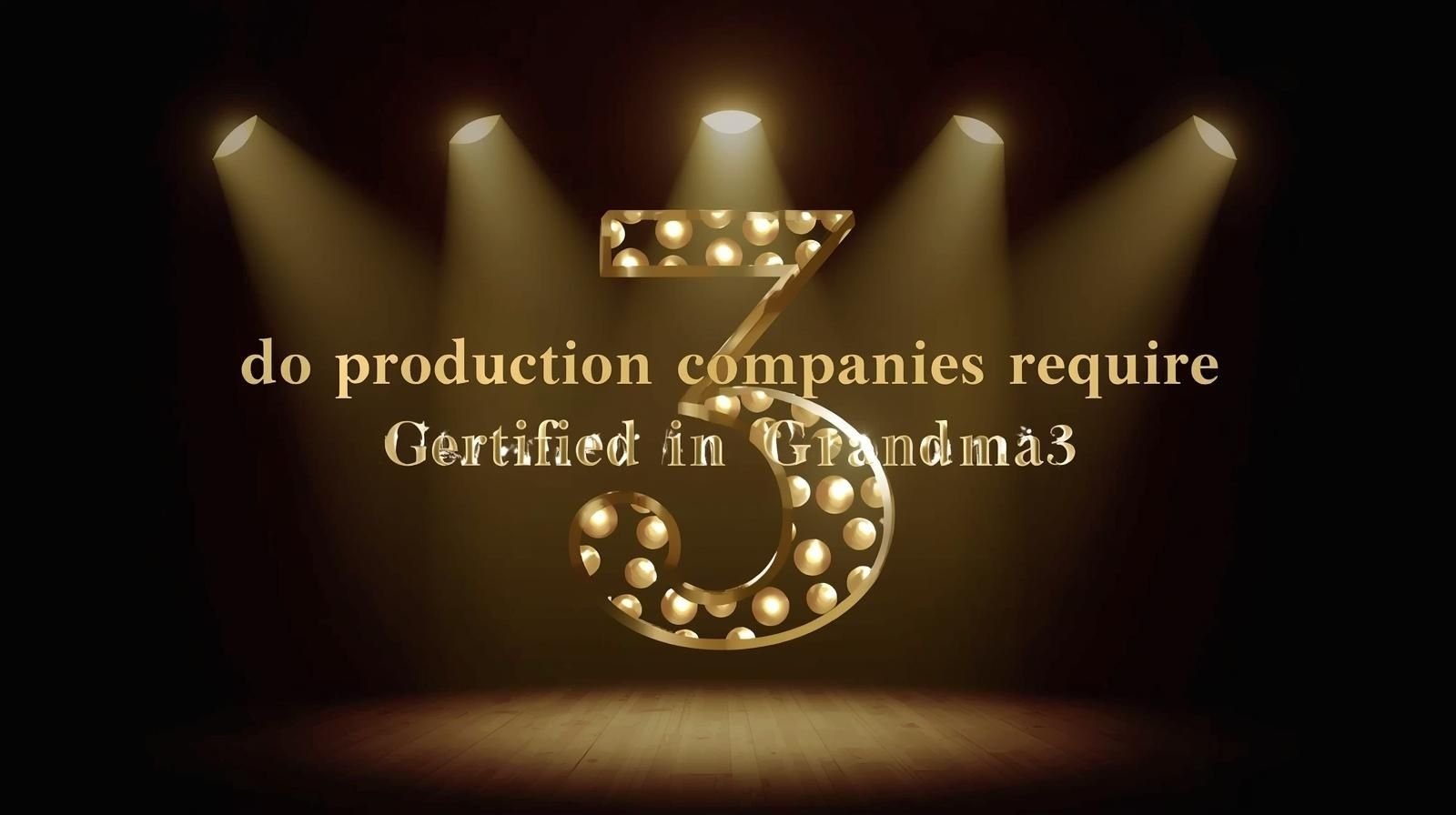Introduction
Picture this: you’re standing in the middle of a massive concert venue, the stage lights are shifting in perfect harmony with the music, and the crowd is completely mesmerized. Behind that jaw-dropping light show? A lighting programmer who probably spent years mastering one of the industry’s most powerful tools—GrandMA3.
Now, here’s the big question that trips up many aspiring lighting techs: do production companies require certified in Grandma3? It sounds simple, but the answer is layered. Some companies swear by certification, others just want raw talent and hands-on experience. And then, of course, there’s that messy middle ground we all find ourselves in—where skills, confidence, and connections matter just as much as a piece of paper.
Why Grandma3 Certification Even Exists
GrandMA3 is like the Rolls-Royce of lighting control systems. It’s widely used in concerts, festivals, theatre productions, corporate events—you name it. Because it’s such a high-end and complex console, certification was introduced as a way to standardize training.
- Certification = credibility. It shows that you’ve been trained on the console by professionals who know the ins and outs.
- Employers use it as a filter. Instead of guessing if someone can handle the board, they lean on certification as proof.
- It boosts confidence. Let’s be honest, knowing you’re certified can give you an edge when walking into an interview or gig.
But here’s the kicker: being certified doesn’t always mean you’re the best person for the job.
Do Production Companies Require Certified in Grandma3? (The Real Answer)
The straightforward answer? Not always.
Some production companies absolutely prefer (or even insist) that their staff hold certifications. Especially in high-stakes productions—think global tours, televised events, or big-budget theatre—employers want peace of mind. Certification is a way to reduce risk.
On the flip side, many smaller production houses don’t require it. Instead, they value proven experience, a solid portfolio, and someone who can troubleshoot under pressure (because, let’s face it, live shows never go 100% smoothly).
So when asking, do production companies require certified in Grandma3, the truth is—it depends on the scale, the client, and sometimes even the personal preferences of the production manager.
Experience vs. Certification: Which Wins?
Let’s break it down in a quick comparison:
| Factor | Certification Matters | Experience Matters |
|---|---|---|
| Big Concert Tours | ✅ Yes, often required | ✅ Yes, must have both |
| Local Theatre | ❌ Not always needed | ✅ Highly valued |
| Corporate Events | ✅ Adds credibility | ✅ Shows adaptability |
| Freelance Gigs | ❌ Not usually needed | ✅ Portfolio is king |
| Broadcast/TV | ✅ Often required | ✅ Strongly preferred |
The reality is, most companies want both. Certification can open the door, but experience keeps you in the room.
Read more: OMGiestrawberry Review: The Best Strawberry Secret Ever
A Day in the Life: The Non-Certified Tech Who Made It
Here’s a quick story. A friend of mine, Jake, started working small bar gigs with nothing more than a passion for music and a half-decent eye for lighting. He wasn’t certified in Grandma3. In fact, he didn’t even touch one until he got a chance to shadow a lighting designer at a mid-size venue.
Fast-forward two years, and Jake was touring with a well-known indie band, programming lights on a Grandma3 console every night. His secret? He learned by doing, asked smart questions, and built a network of people who vouched for him.
Did certification matter? Nope. Would it have made his journey easier? Absolutely.

Why Some Production Managers Insist on Certification
Think about it from their shoes. Production managers often juggle budgets, tight schedules, and demanding clients. They don’t want to gamble on whether a lighting programmer can handle the pressure. Certification gives them:
- Peace of mind – They know you’ve been trained.
- Consistency – Certified techs usually follow best practices.
- Professionalism – It signals seriousness about your craft.
But again, if you show up with glowing references and killer experience, many managers will overlook the lack of certification.
How to Decide if Certification is Right for You
Here’s a good litmus test:
- Planning to work on international tours or large productions? Get certified.
- Mostly freelancing for smaller gigs? Build your portfolio first.
- Want to stand out in a competitive city? Certification could be your edge.
- On a tight budget? Maybe invest in hands-on learning and work your way up before dropping money on courses.
Remember, certification isn’t cheap. And while it’s valuable, it’s not the only way to prove your worth.
Tips to Land Jobs Without Certification
So, what if you’re not certified yet? Don’t sweat it. Here are some actionable ways to still make it:
- Create a demo reel. Record your lighting designs and programming skills. Even a 2-minute reel can impress.
- Network like crazy. Half of this industry is “who you know.” Show up, volunteer, and meet people.
- Learn from YouTube and forums. The Grandma3 community is massive—free tips are everywhere.
- Shadow experienced techs. You’ll learn faster on the job than in a classroom.
- Say yes to small gigs. They lead to bigger gigs. Every time.
SEO Insights: Why This Question Gets Asked So Much
If you’ve Googled do production companies require certified in Grandma3, you’re not alone. This exact search reflects the growing curiosity of young technicians trying to break into the entertainment industry.
Google’s latest algorithms reward experience-based content—so articles like this (with real-world examples, comparisons, and conversational tone) have a shot at landing in featured snippets. That’s why I’ve included both direct answers and expanded explanations, giving Google multiple ways to highlight this article.
Conclusion
At the end of the day, the question do production companies require certified in Grandma3 doesn’t have a black-and-white answer. Some do, some don’t. What really matters is whether you can handle the pressure of a live show, keep your cool when the console crashes, and deliver a lighting performance that wows an audience.
Certification can open doors, but it won’t replace passion, practice, and persistence. If you’ve got the chops, you’ll find your way onto bigger stages. And if certification feels like the next step, go for it—it’ll only add to your credibility. But don’t let the lack of a piece of paper stop you from chasing those gigs today.
FAQs
1. Is Grandma3 certification mandatory for all jobs?
No, only some larger productions require it. Many smaller gigs care more about hands-on experience.
2. How much does Grandma3 certification cost?
Costs vary, but expect to spend anywhere from a few hundred to a couple thousand dollars depending on the training program.
3. Can I get hired without certification?
Yes. Plenty of freelancers and in-house techs work successfully without ever getting certified.
4. How long does it take to learn Grandma3?
Basic functions can be learned in weeks, but mastering it takes months—or even years—of practice.
5. Which is more valuable: certification or portfolio?
Both matter, but in freelancing, your portfolio often wins. Certification shines more in corporate or large-scale settings.
Thanks for visit Techywil











